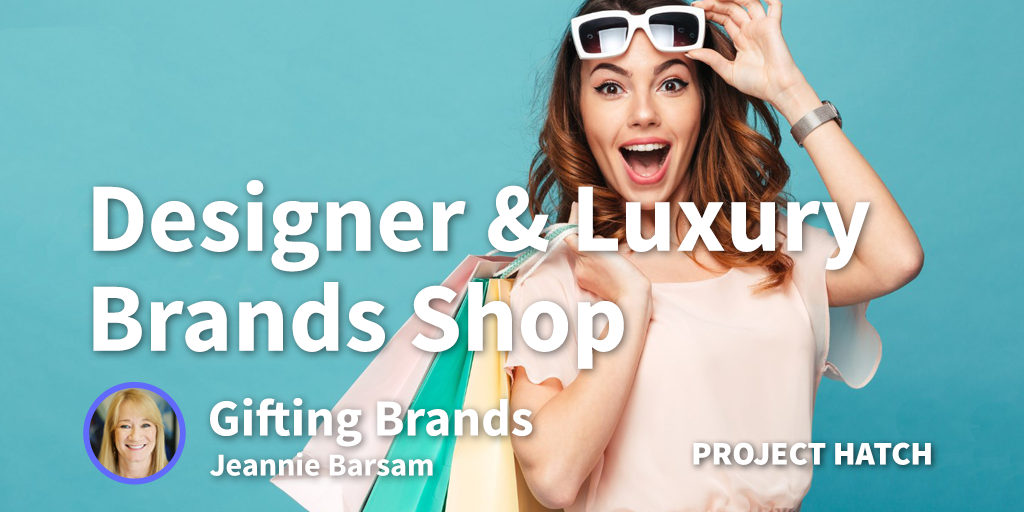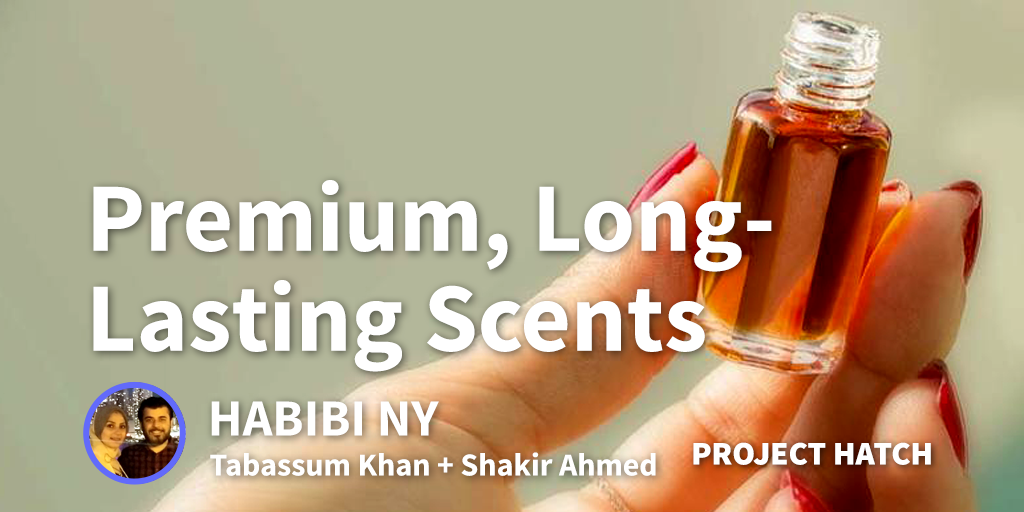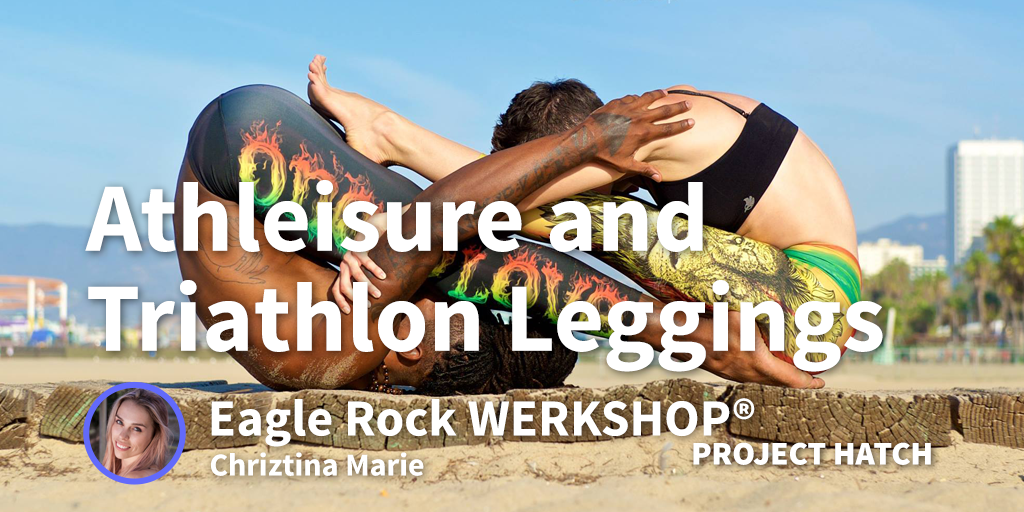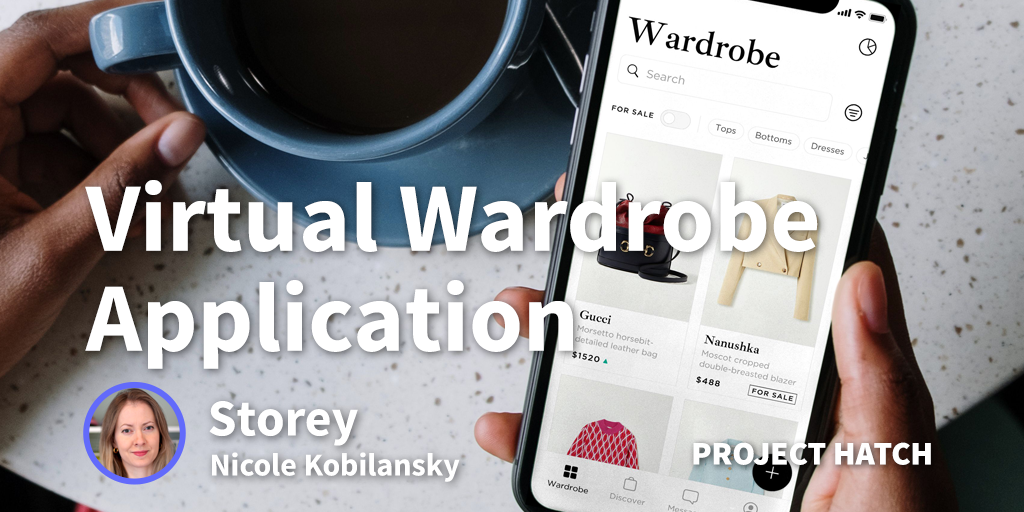Patrick Ma has spent the past 21 years working on his passion - adventure and wilderness gear and the outdoors. His gear has become a favorite for many in the special forces and law enforcement. In his role as founder and creative director of his second company, Prometheus Design Werx (PDW) - an adventure-outdoor equipment company, he has become renowned for uncompromising workmanship, design and quality.
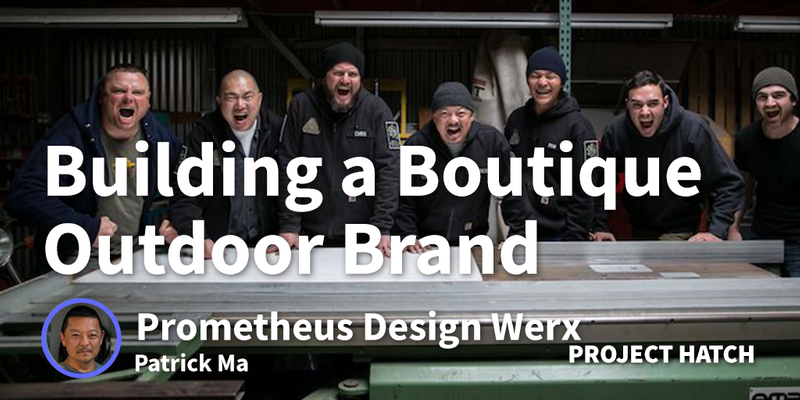
Ma spends time outside work on his vintage motorbikes, exploring the wilderness, engaged in wildlife conservation projects and with his young sons.
"one can have a lot of ideas, these ideas are nothing, absolutely worthless unless you have the wherewithal, the fortitude, the grit to find a way to execute on them."
I spoke to Patrick to find out how he has managed to combine his passion for survival and design, how he attracted his first 100 paying customers and the lessons he learned leaving his first company after 15 years due to a 'partnership dispute'.
After leaving his first company, Ma rebuilt from scratch - perhaps the most impressive aspect of his story so far. On his journey he has learned a lot about design, grit and finding the work-life-balance sweet spot.
"I worked pretty much 6-7 days a week for well over 14 years not because I had to much of the time, but because I really loved my work."
Hi Patrick. Who are you and how did you decide you wanted to create an outdoor products company?
Hi, Nathan, I'm Patrick, Founder, Chief Designer and CEO of Prometheus Design Werx.
I was born in Bruxelles, Belgium and by the age of 4 I had lived in 3 countries. I spent most of my childhood in and surrounded by the mountains and forests of Pennsylvania and Upstate New York. So, being immersed in nature, wild spaces and how to live in them was integral to my everyday life.
We all understood the basics of existing in the backcountry, from making a proper campfire, not getting lost, the proper clothes to wear, to identifying wild edibles and more. Improvising and adapting to my natural surroundings and various seasons became second nature.
For much of my youth “having fun” was meeting up with my friends after school and on weekends; exploring a new part of the forest, finding a new spring or stream, getting to a new mountain top, to even discovering old abandoned and overgrown railroad tracks and cisterns, we encountered wildlife everywhere.
I didn’t really understand what tract homes (identical homes on a plot of land) were until I moved to California when I was 13, and man that was weird. I couldn’t stand the suburbs. I went to 4 high schools, then college and graduate school. Often it seemed like I was always the “new kid” and adjusting to a new school can be challenging, but it taught me certain skills on how to adapt to new social situations and that there are good people, and yes, also asshats anywhere you go. You find yourself honing your BS meter moving around a lot, but also recognizing that there are some real gems for people you will run across, and to learn from them.
How Did Your Education Influence You?
I liked school when I was really young and excelled in all my classes, but pretty much after the 8th grade I was looking forward to the day of getting out. College and graduate school were pretty much obligatory and the best thing I took away from those years were making some amazing friends and our experiences.
I didn’t find college or grad school courses particularly difficult, and often I thought them uninteresting. Some of it was useful, but honestly a lot of it was not relevant in the “real world”. I think much of my schooling actually showed me what I didn’t want to do. From early on in my life I valued my autonomy and independence. There was always the drive in the back of my mind to find a way to live a life beyond the assembly line or the office environment, none of that felt right.
"I think much of my schooling actually showed me what I didn’t want to do."
I started backpacking when I was around 12 and throughout my earlier life and into adulthood, I was happiest doing things on my own terms, in the freedom of the wilderness, the mysteries of a new place, and in the company of people I choose as my family. Like a lot of kids in my day, I started working when I was 16. I loved the water and to swim, and was trained and worked as a lifeguard and then also an aquatics instructor all through into my early 20’s. I really enjoyed this line of work. I felt like I was in a real position to help people when they got in trouble, and taught toddlers to adults how to swim. Plus I got to be outside in the sun, water and fresh air.
Somehow I always had an affinity and interest with objects and tools. I loved working with my hands and as a kid trying to modify and “improve” things around the house, toys, and even asking my mother to sew extra pockets on my jackets so I could better carry a canteen in them when hiking. In school my favorite classes were anything in the shop. At 11 I forged my first set of iron fireplace tools. In college and grad school I spent as much time in the various workshops, frequently skipping class. I got my first motorcycle when I was 18 and spent a lot of time tinkering on that, and all my subsequent bikes after.
Earlier I mentioned how in the 8th grade I began to look away from school and day dream of the greater world at large. It was having one particular teacher in my school in Upstate New York who really changed my outlook. I mean, he wasn’t a slacker or vagabond, on the contrary, he was a dedicated teacher, actually one of the toughest in my school. He used to cross country ski to school in the winter and he also taught the elective mountaineering class. That fascinated me. Up until then I mostly only knew the hunting and fishing side of outdoor life, not what we now call in the industry as, “core outdoors”, which are backpacking, kayaking, rock climbing, mountaineering, backcountry skiing, etc.
After expressing my curiosity, this teacher introduced me to this realm of outdoor life and I was instantly hooked. To this day the courses he taught at this school such as earth science, geology, astronomy, were my favorite. His tests were unique. Instead of the rote tests many of us are familiar with, some of his tests were situational and required solutions based on the course work. A test for example might pose that you were marooned on an island, with a certain set of supplies, with a particular set of natural resources, and what constellations you could see in the night sky. You were to create a plan on how to survive using what you had and then determine where you might be. These particular set of “classroom” experiences never left me.
My Master’s Degree is in sculpture. I made objects. I spent as much time in the woodshop and foundry as I could. This is where I got the most out of my “higher education”. I learned how to better work with wood, plastics, cast and then cold work bronze silver, aluminum and even glass. I learned a lot by taking cues from the industrial design department. Even though I was in the fine art department, I usually spent my time learning about industrial design techniques. The pragmatism, usefulness, and purpose driven creativity was what interested me most. In insight I probably should have pursued that course work, but I did not have the right kind of portfolio to get into that department when I applied for grad school.
After grad school I landed a production design job. I was stoked...for about a week. I stuck it out there for about a year. The office politics sucked, my direct supervisor was lazy and an empty seat, there was no sense of community, and I found myself just pushing back and rebelling. This work life was not for me. I knew that if I was going to work this hard, I had to apply it to something I was passionate about, something I believed in, and done by my own hand. Something where I could bring my best forward and share it with others.
Was your idea a lightbulb moment or gradual process?
I always had ideas, tons of them, for as long as I could remember. I wanted to make things. The light bulb was and is always on. It’s just how my brain is wired. For most objects, doesn’t matter what it is; from hard-goods, to apparel, bags, housewares, cars, whatever, if they were of interest to me, I could think of ways to improve them, imagine how I could modify them more suited to my tastes, or create something from scratch within that category and context, that truly spoke to me and from a purpose driven perspective. Some of my creative process is intuition and subconscious, might I say perhaps a touch of alchemy. Maybe this is where one breathes a bit of soul into product design.
What made PDW the idea to put your time into and what led to that conclusion?
My design ethos and creative considerations are most certainly born from my own set of lifelong and ongoing experiences. From the empirical to the aspirational and even the subsequent aesthetic, would these objects and products truly make a positive difference. Not everything works. Many do. The prototyping to the T&E stages validate if an idea turns out to be meaningful and worthwhile.
Even though one can have a lot of ideas, these ideas are nothing, absolutely worthless unless you have the wherewithal, the fortitude, the grit to find a way to execute on them. Honestly, ideas are a dime a dozen, they’re cheap and ether. The real value is being able to bridge the concept to a physical tangible object in your hand. That is the key. Being able to execute on the idea, 99% of the real work, the truly hard work, is to make it happen and taking the risk to actually do it, whether it fails or not.
Standing on a soapbox and touting your great idea to anyone who will listen is nothing unless you buckle down and make it happen. 99.9% of the time, those freshman fantasies of someone swooping down from the heavens to give you that million bucks to fund your idea is just that, a fantasy. AND if by some chance someone does, they very likely have the intention of stealing it from you. They have the money, they have the lawyers, and while they may not have the million dollar product(s) idea, but they’re sly enough to steal it from you. Happens all the time. Just a word of caution….
"When I started my first brand, it was a huge leap of faith."
When I started my first brand, it was a huge leap of faith. I made the do or die commitment to do it. I had to find a way or make one. You have to figure it out, create a network, hunt for suppliers and factories, vet them, hit the pavement, knock on doors and also be prepared to have doors shut in your face, turn over rocks, and you must believe in yourself.
I started right around the dawn of the internet as we know it today. So this is before we had huge wealth of manufacturing and supplier lists online like we have today. Yeah, I had to use the yellow pages, and literally drove and walked around to track down sources and see if I could connect with them. I did a lot of asking around.
Fortunately for me the CA Bay Area was one of the early epicenters of the core outdoor industry in the late 60s early 70s. Some of today’s best known, major legacy outdoor brands started right here in the Bay Area, so even though much of it was dying by the time I jumped in, the infrastructure was still around. You just had to work to find it. Most wouldn’t take a chance on a newbie, I had to knock and knock on doors until someone finally let me in, literally and figuratively.
When you start something like this, many around you will be naysayers, try to talk you down, you may likely find yourself walking this path alone. I know I did, but I also knew I wasn’t doing it “for them” I was doing it for myself, chose to filter out all the negative noise and at least try. Better to have walked the path of your own making and possibly fail, than wake up one day in the twilight of your life and say to yourself, “I could have, I should have…”.
How did you initially fund the idea?
In 1997 I started out on $1500 after selling the only thing I had of value at the time, which was my motorcycle. I rolled the dice, planned as best as I could and built my entire first company on that money.
Where did you meet your cofounder/founding team?
The founding team at my first brand was comprised of me. Yeah that’s it, just me. The first 6 months it was out of my garage, just me (and my dog).
Where did you find your first suppliers?
I “found” my first suppliers by being stubborn and calling and calling or literally knocking on doors until I got a hold of someone. Then finding those suppliers who were willing to start out small with you. 9 years later I had already become some of my suppliers’ biggest client. Much if not most of my goods were and have been made locally to me in California. As you grow you also expand your network and due to production and technical fabrication requirements, we source nationally and now globally for our high level production needs. It's key to our R&D process at PDW to find the best manufacturing partners to bring the best caliber of goods to the end user.For almost 10 years, I rarely had to put an add out for my employees. Usually it was for bookkeeper type roles. I kept a small and tight crew, some were friends I worked with previously at other companies, most often they were referrals from friends and in some instances they made it a point to come and talk to me about a job. Not everyone works out of course and I do caution hiring friends. Some relationships can be terrific, but in some instances it can create a difficult dynamic at work. At many times, about half my staff were veterans.
Do you have any tips for finding first employees?
My first employee I actually met at a local gun show in San Francisco. It was like a mash up flea market of sorts with gun dealers, surplus vendors, camping gear, to beef jerky. There was this kid who kept coming up to my display when I did this show and would look and handle everything. He seemed very knowledgeable about these types of goods, but would never buy anything, so one day I was like WTF, and asked what his deal and background was. He told me he had recently gotten out of the Marine Corps, moved back home, hadn’t found a job yet so couldn’t really spend too much money. 23 years later we still work together.
How did you attract your first 100 customers?
Until I started this first brand, I had only used computers to write papers for school. And yeah this was in the days of UNIX. It was easier than using a typewriter, but I wasn’t in love with it. I did eventually get to write papers on Macs and that changed my opinion on computers, but still didn’t embrace them. That changed in 1996/97.
When my roommate at the time showed me what a search engine was on his work laptop, my mind was blown. It changed everything for me. From there I was able to use my most important “tools” to create my business. From a virtual store to connecting with potential customers all over the country and world it was life changing.
Those early online communities allowed so many of us to gather and discuss the things we enjoyed and were passionate about. I found a few key groups that were totally in my wheelhouse and build up not only a customer base by sharing product knowledge and lifestyle interests, but made great friends which I have to this day. My customers’ interest in my brand grew organically because we genuinely share like minded interests. I didn’t really want to or necessarily need to aggressively “hawk my wares”.
My customer base grew almost entirely by word of mouth and I did not use any established forms of advertising or marketing. Some of my most loyal customers from early on were those in the Special Operations and Law Enforcement Communities, many of which are still with me today and have evolved alongside with me, my designs, and my brands.]
Why did you leave/sell your previous company?
My first brand was at the time, a lifelong pursuit. I loved it, it was in many ways like being the father of my first child. I personally built each relationship, from customers, employees, to vendors and suppliers for that brand so it could flourish and it did. This work also was all consuming. I worked pretty much 6-7 days a week for well over 14 years not because I had to much of the time, but because I really loved my work.
To have created something from nothing and find myself in a position where I could create so many things that not only spoke to myself personally but to share it with a pool of really great people was truly rewarding. The brand was continuing to thrive, I had a great staff, and most of us were like a family. And yet in the course of one’s life, there are also those important personal relationships that come to be outside of work.
It was about after 14 years, I found myself in a place where I wanted and was able to have my own family. I couldn’t and didn’t want to work the days and hours I had been. In short, I brought in some people as “partners” with the “right expertise” to help me run the business so I could have a meaningful life outside of work. As it has been publicly stated back then, there was a “partnership dispute”.
Unfortunately, things don't always work out. It can be likened it to a quick marriage with a new wife that you did not know well enough, and then get a divorce. It happens. Around the time I made the decision to leave my previous brand, I had an awesome new baby boy and another one on the way. My family was and is everything I hold dear. I made the tough decision to leave that miring situation behind me, and instead cherish and revel in the best things that were right in front of me. It was a huge relief. After taking about a year off, I started my next brand.
What advice would you give to someone in a similar situation?
I certainly learned a lot from that experience. I do not come from any corporate business background, never had any real protracted dealings or relationships with lawyers, and to be perfectly frank I think I was rather naive about the whole thing. I was really just a misfit outsider who worked hard on building a vision and operated in a rather old school fashion with handshakes and a man’s word.
"Partnerships" can be tricky. If you can do it on your own with great people to support you without giving up any measure of control, then absolutely do so. If you can dig up some additional material online on Shawn Stüssy and Dana Gleason (formerly of Dana Designs and currently the man behind Mystery Ranch), as case studies, there are many lessons to be read in-between the lines. No matter what, someone who might claim that they have your best (personal and business) interests at heart, you really are the only one who will be able to look out for that. Make sure you have the legal representation to protect your interests. For something as serious and partnerships with equity, do your due diligence and background checks. For someone that may try to extend their "business hand" to you, remember in today's world, that means nothing to most, it's what on paper and the fine print that matters.
Besides my family who I adore, I value most my autonomy and independence. My only real regret is having left behind one platform I created where I was able to really promote a personal passion of mine with wildlife conservation. Although I have new channels to engage in that kind of important work now, it’s a shame that I left that one particular channel behind and as far as I understand, no additional support of wildlife conservation has come from it since. As a Founder, CEO and also the Chief Designer rolled into one, I know I have an ability to create something from the ground up. If you find yourself in an really distasteful situation and you have the skill set to start something new it could very well be better for you in the long run. If you try to struggle through something truly toxic, it may very likely continue poison your personal and professional life to a very unhealthy state. If you are a Founder, you have something special. In the greater business arena, there are those who may only know how to usurp, and they will never have the gift that you have. They will only follow in your footsteps. They exist only because of your DNA so remember that.
There will be times when you will have to make the determination of what business goals and outcomes come at what cost. I made the right and best choice for myself and my family. There is no question in my mind between choosing my family or a business. Onwards and Upwards.
What have you learned starting your second company and why did you choose to set up in a similar space?
I choose to do what I do because it comes from my heart and mind. And not to toot my own horn, but I’m actually not too bad at it. The things I make enhance my life and perhaps more importantly (and certainly from a business and consumer perspective) those of others. My designs are derived from a place and experiences that are intrinsic to my existence. My design ethos has been a lifelong pursuit and like any organism also evolves and improves over time. Adventure and exploration is a state of mind that I share with many; where I am obligated to do what I am good at and create the goods to support that. I need to stay true to myself from my professional inception. A part of me is still very vested in art & design. I like to think I have brought some of those things into what I do at PDW. I don’t want to limit or constrain myself and my interests. I may very well embark in even more endeavors in the art & design sector in the coming days, who knows. I also recently co-founded yet another brand with a long time friend in the knife industry and have expanded my business interests and product designs even further.
"No matter what one does, the biggest lessons are often by learning from one’s mistakes."No matter what one does, the biggest lessons are often by learning from one’s mistakes. You must own up to them, identify the root causes, fix them, and make it right. I have certainly made my fair share personally and professionally, but with each new lesson, you are allowed to improve yourself, those around you and whatever enterprise you are engaged in. It’s about putting your best foot forward every day, leading from the front and not hiding behind the curtain, facing your flaws, changing them for the better and applying your strengths, to be proud of what you do and share it with others so they may also benefit.
When you get a second chance it is an opportunity to not revisit your previous missteps. Do as much right as you can from the getgo. Of course some old habits die hard, right or wrong. But at least you are better able to recognize them sooner. This time around, I knew it was important to have good lawyers watching your back. Anyone you bring onboard and choose to work with, you can trust, but verify.
Do you have any advice for someone starting out?
For those who are starting out in this bumpy, thrilling, risky, challenging and also rewarding world of brand building, do so because you want it, you believe in it, it will make a positive difference in your customers’ lives, and that you love it. No idea will be great unless you can find a way to execute on it.
Be wary of those you come across who need to frequently make declarations about their honesty and integrity without you prompting, because usually they are the exact opposite. Anyone in your business space who volunteers that they “would never cheat or steal from you”, means that they already thought about it, so steer clear of them. The business world is a difficult and also exciting place to navigate, just be prepared.
Follow your gut, it is right most of the time. Good people are good people and give that goodness back in return. Greed is not the end game. Be firm, but fair. Treat your employees how you wish to be treated yourself. Respect is earned, not given. It is so important to create your organization’s culture in a positive way. It will lead to a healthy workplace and business that can thrive. Not everything will always go your way, often it will not. An executive team’s best work is often in how to deal when they don’t and move past them.
The world of startups is more crowded than ever before. Seems like everyday there is a new brand offering the same or similar products, so definitely have some fresh directions to pursue. It will be a challenge to stand apart. It has been our goal from day one to build on previous strengths but also and most certainly to be fresh while staying true and authentic to ourselves.
Social media is a blessing and a curse. For PDW, we love it and hate it. Social media has brought in a lot of our traffic and new customers, but with FB and IG, they have become the giant, ugly trolls under the bridge demanding tribute to get across. You frequently have to pay to play, and they are laughing all the way to the bank. Kudos to them for locking it up. BUT, it is the norm for now and we all need to work with it until something else presents itself as an alternative, but even then that will eventually become the new troll. It’s the nature of business. And I quote, “...make the best of it...improvise, adapt to the environment, Darwin, sh*t happens...i-ching, whatever man…[you] got to roll with it….”, and use it to your full advantage as best you can.
Along with social media PDW is fortunate to have a very healthy core following by word of mouth. There is no silver bullet. Wars are won with winning smaller battles.
What are the top 3-5 apps your business could not run without?
Adobe Creative Cloud, Shopify, QB, G-Suite.
Have there been noticeable upticks/downfalls in sales around any news events?
Our growth has been pretty steady, so we’ve been pleased, but no significant news events that have created any notable uptick or down.
What is the funniest/most strange customer support question you have had someone ask?
Once we received a phone order from a sat phone. The customer wanted to place an order and we could hear small sporadic small arms fire off in the distance.
This past year a customer returned a pair of pants and wrote the reason as, “being too rugged”.
Another time, we had a “customer” return a whole size run of a certain apparel style without any reason, and after a quick look up we discovered they were a product design for hire group whole helped create products for other clients. So not really CS questions I suppose but interesting support tickets of note.

